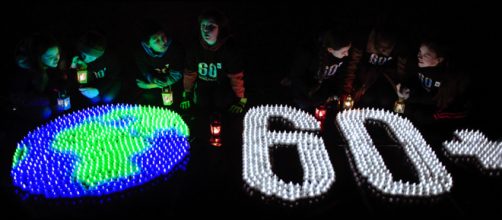Earth Hour is an Event to highlight the growing risk of climate change to the planet and the deadly impact it will have on the human race. The movement began in 2007, with the first ever switch off in Sydney but a year later in 2008 the movement grew quickly and in 2008, 371 cities in more than 35 countries got involved, including the UK and London.
Last year was the biggest Earth Hour event, with record 187 countries that took part. This year, at least 180 countries will be taking part and Ariel have said they would donate £1 for every promise made for the planet.
You can visit WWF for more information.
The message of Earth Hour
As accelerating climate change and staggering biodiversity loss threaten our planet, Earth Hour 2018-2020 endeavours to spark never-before-had conversations and change attitudes on the loss of nature and the urgent need to protect it. Around 80% of freshwater species have declined, over 50% of populations of land species have declined, approx. 40% of our forests have disappeared to agricultural land with 15 million trees lost each year just for soy production and 1 in 6 of the planet’s species are at risk of extinction from climate change.
The 60-minute event itself will not save the world and personally, I am normally very sceptical about stuff such as these because for a lot of people, this is their chance to show they are doing something but then fall back into old habits once it has finished.
But the planet is more important that a cynical look at the nature of humans and the event was developed to make people stop and think about how much they consume, then perhaps even inspire many people to continue some of those aspects in every day life.
Across London, iconic monument swill be switching off, these include Big Ben, Piccadilly Circus, the London Eye and Parliament. Other monuments across the globe such as, the Eiffel Tower, Trevi Fountain and Sydney Harbour Bridge will power down for the 60 minutes.

